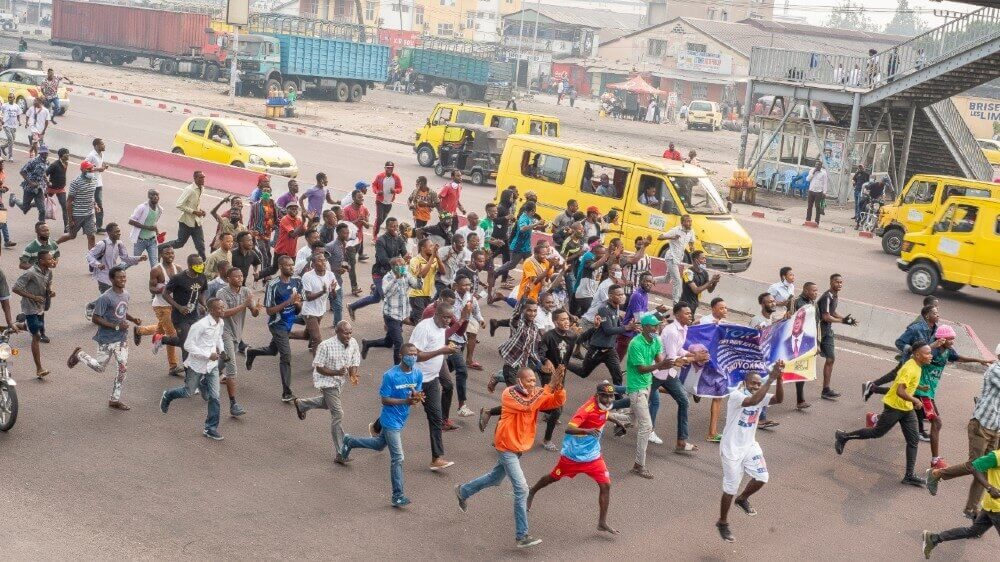Over the last few weeks, violent protests have erupted across the Democratic Republic of the Congo (DRC) after the National Assembly appointed Ronsard Malonda as the chairman of the national electoral commission (CENI). Malonda is accused of rigging past elections to help former President Joseph Kabila stay in power for eighteen years from 2001 to 2019.
Although the current president Felix Tshisekedi took power in a peaceful political transition in January 2019, he continues to govern in a coalition government with Kabila supporters. In fact, it is widely suspected that his Tshisekedi’s electoral victory was also rigged to prevent opposition candidate Martin Fayulu from winning. Therefore, while Kabila may have officially stepped down from power, it is clear that he still holds considerable influence over DRC politics, as evidenced by the fact that his supporters are still being appointed to high positions within the government.
In fact, just last month, Kabila’s allies put forth judicial reforms that would significantly redefine and undermine the powers given to judges by giving politicians “more control over criminal prosecutions”. The proposal was submitted by the Common Front for Congo (FCC), which is a coalition of parties that support Kabila. In the wake of these events, Justice Minister Celestin Tunda voiced his displeasure and was subsequently arrested and forced to “resign”. His resignation came under immense political pressure by Tshisekedi, who reportedly said that he would fire Tunda if he did not quit.
Protestors are dismayed by the economic and social strife in the country, and are also responding to a call to action from the alliance of major opposition parties, Lamuka, whose candidate, Fayulu, lost the December 2018 elections under suspicious circumstances. Thus, by appointing Malonda to head the CENI, citizens believe that is only further entrenching its deeply-rooted corruption.
Five people have already been killed during the demonstrations in the capital, Kinshasa. Police have used tear gas to disperse protestors, and there have also been multiple sightings of unidentified men in civilian clothes attacking protestors. Similar aggression was launched upon protestors in the cities of Lubumbashi, Bukavu, Mbuji-Mayi, Beni, Kisangani, and Kananga. The resolve of the citizens was only emboldened after Interior Minister Gilbert Kankonde banned all such demonstrations in the country last Thursday. Anger is mounting against the president and his party, the Union for Democracy and Proress (UDPS), and this is sure to only rise following the brutal crackdown on protestors.
Admittedly, President Tshisekedi has not yet approved Malonda’s appointment by the lower house of the parliament. In fact, in a cabinet meeting, he even acknowledged and understood the anger at the “irregularities” in Malonda’s appointment. However, it is assumed that that his appointment is all but a formality.
Image Source: Al Jazeera
Violent Protests Across DR Congo After Controversial Appointment of New Elections Chief
Richard Malonda is widely credited with rigging past elections.
July 16, 2020

